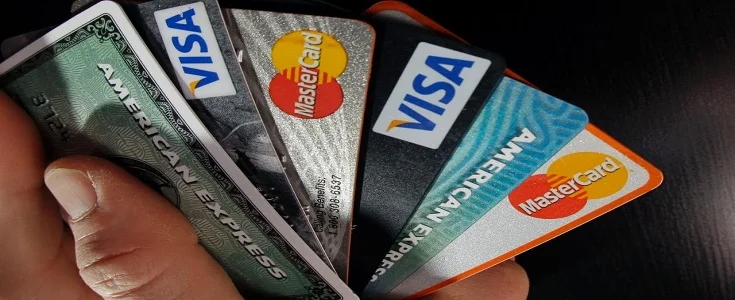Banks Tighten Up On Credit Card Lending Restrictions

Any increase in activity Consumer spending can only be considered a positive thing in terms of getting the economy back on its feet. It stands to reason that the more UK products and services the average British consumer decides to invest in, the better the economy will perform as a whole. However, when an increase in public spending leads to excessive levels of personal debt, the situation stops being beneficial and becomes something of a serious economic problem.
According to recent reports, it seems that a large percentage of consumer spending over the last 12 months has been a direct result of increased personal borrowing. In fact, a recent report published by the Bank of England suggests that UK borrowing has gone somewhat out of control during the past year, with borrowing growth exceeding 10% within the past 12 months alone. With most of this figure being attributed to credit card borrowing, the UK banking sector has decided to tighten up on credit card lending across the board in order to help rectify the situation.
The official Bank of England warning states that banks could face an even bigger problem from consumer debt than mortgage lending. However, is this really the fault of the British public? The recent uncertainty following the Brexit vote saw many banks trying to tease consumers back into borrowing by offering some of the lowest credit card rates that the UK has ever seen. With more and more people applying for new credit cards and a similar increase in the rate of approval, almost a third of all credit card lenders have decided that the time has come to reverse the current trend by taking a much more restrictive approach when processing new applications.
Many leading experts are pleased with this decision, claiming that a lack of tighter restrictions could prove to be a serious threat to borrowers and lending facilities.
“The Bank of England will be pleased to see lenders tighten credit scoring criteria for unsecured lending in the first quarter and expect to tighten them significantly further in the second quarter (particularly for credit cards),” said Howard Archer, chief UK and European economist at IHS.
“If the fundamentals for consumers do weaken further as expected over the coming months, it is vital that banks adopt tight lending standards in granting unsecured consumer credit, or it risks causing serious debt problems for the economy. This would be reinforced if the Bank of England felt compelled to raise interest rates due to mounting concern over the potential inflation overshoot.”
With the short- and long-term effects of Britain leaving the EU remaining something of an unknown quantity, credit consumers are now being advised to take extra caution before deciding to borrow beyond their means. Although unemployment and interest rates are both at the lowest levels they have ever been, it is impossible to foresee how the situation will change over the next few years. It is therefore essential that borrowers do not get into excessive amounts of unnecessary debt in the meantime.
